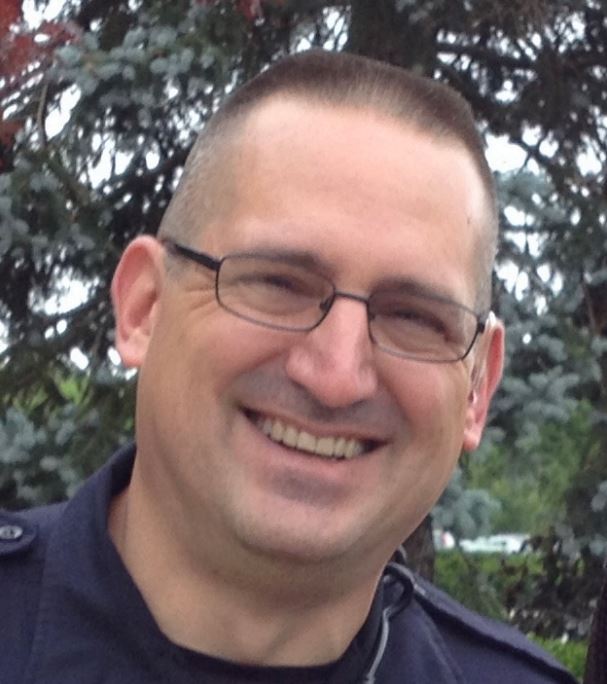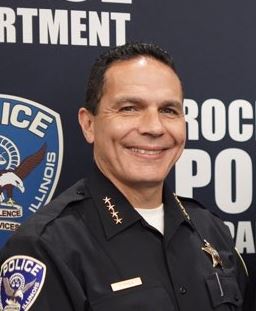Urbana, Rockford adopt pilot co-responder program with behavioral health agency to respond to mental health crisesBy Sherrie Phipps It seems like more Illinois police agencies are continuing the trend of adopting social service programs into their departments to deal with the growing number of mental health crisis calls. Just recently, two more Illinois agencies, the Rockford and Urbana police departments, announced the creation of their newly developed co-responder pilot programs. “Like every other agency, we’re dealing with, and have been for the last 15 years, the increase in people who go into behavioral crisis,” said Chief Daniel O’Shea of the Rockford Police Department. “We figured instead of responding to the same crisis calls, we needed to go out and be proactive; to try to remedy the problem with families and health services with a long-term goal.” Just last week, Rockford opened the doors to its three-month pilot project with Rockford Fire Department, the Winnebago County Sheriff’s Department and Rosecrance, a leading provider of behavioral health services. “Rosecrance is grateful for these creative partnerships with law enforcement,” said Carlene Cardosi, Regional President, Rosecrance, Inc. “Our trained professionals will work to serve members of the community whose illness requires prompt, compassionate and appropriate care while providing access to those who seek care and follow up services.” The cohort’s main goal was to front the costs for a team of two detectives, a county sheriff and Rosecrance clinicians who can quickly respond to individuals suffering a serious mental health episode. “Again, the goal is to be proactive here. We want long-term effects where these calls won’t lead to arrests, incarceration or further problems in the community,” Chief O’Shea explained. “So, for us, we think this is a really good opportunity to build on our social services made available to the public and to better produce our service calls.” The Urbana Police Department plans to execute a similar project early next year called One Door. One Door will serve as a single-door solution that offers the opportunity for those battling mental illness to be recognized, evaluated, stabilized, and engaged with. The overall goal is to enhance, but not replace, the already established resources and to decrease law enforcement contact. Urbana Lieutenant Joel Sanders, a 30-year police veteran and lead organizer of One Door, says even though he’s spent most of his tenure as a patrol officer, his passion has always been mental health, both for officers and those in the community. “One Door was initially created with the emphasis to support law enforcement with resources, but will now be accessible to the community,” said Lt. Sanders. “The best way to picture it would be like an emergency room for individuals in crisis. Partners of One Door include: Champaign County Law Enforcement, C-U at Home, Rosecrance and Carle Health Care System. Lt. Sanders describes the One Door approach as a dual model. Treatment can either take place in the facility or on scene, perhaps at a residence. However, social service clinicians will either respond to crisis calls themselves or will be called to the scene when needed. 
“This will help officers better make decisions,” said Lt. Sanders. “I come from the belief that while social workers need to partner with law enforcement, I don’t know that they need to be employed by law enforcement, so Rosecrance will own t hat entire sector and will employ 12 social workers.” Lt. Sanders added that he hopes this program restructures the roles of law enforcement professionals and social services workers. “You’ll never get law enforcement out of the mental health system just for various different reasons, but I would like to get law enforcement running in its lane of law enforcement and mental health running in its lane and the two meet and cooperate together.” One Door will operate 24 hours a day and will serve anyone in crisis. The facility will be located at 70 E. Washington St., Champaign. Ed Wojcicki, executive director of the Illinois Association of Chiefs of Police, said he wants Illinois law enforcement agencies and lawmakers throughout the state to know about these pilot programs. “There is not a one-size-fits-all solution to local communities’ engagement with people with mental health issues, and so these innovative co-responder pilots in Urbana and Rockford are worth watching.” He praised both communities for taking a countywide or regional approach because that way, the broader community can tap into more social service resources. Wojcicki also pointed to a recent survey the association conducted of police agencies with social workers on staff or under contract at the local level. About 50 Illinois police departments have such social service professionals – a trend that seems to be growing in Illinois and nationwide. |

